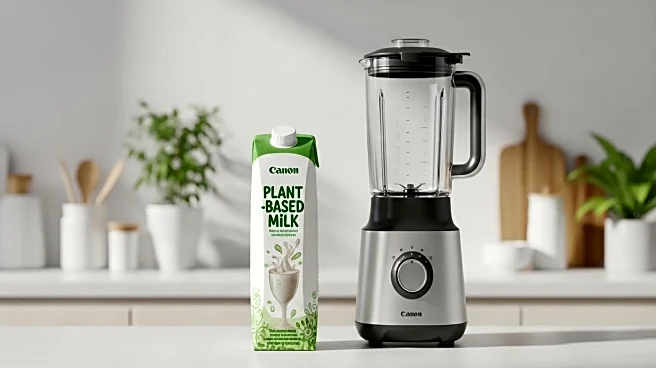What is the story about?
What's Happening?
The food and beverage industry is currently grappling with significant challenges in its efforts to innovate. Rising production costs, supply instability, and geopolitical tensions are threatening global commodity and trade flows. Additionally, the ongoing cost-of-living crisis is making affordability a major barrier to innovation. Consumers are increasingly demanding products that are plant-based, functional, indulgent, and clean-label, which adds complexity to the innovation process. Alisia Heath, Vice President of R&D at food tech company NotCo, highlights that manufacturers are facing difficulties in deciding which consumer trends to prioritize. The industry is seeing a trend towards collaboration among brands to cut costs and foster creative product development, as exemplified by partnerships like Oreo and Reese’s.
Why It's Important?
The challenges faced by the food and beverage industry have significant implications for both manufacturers and consumers. Rising costs and supply chain disruptions can lead to higher prices for consumers, potentially limiting access to innovative products. For manufacturers, the need to balance multiple consumer demands while managing costs can hinder the pace of innovation. The industry's response, through increased collaboration, could lead to more diverse and innovative products reaching the market. However, the pressure to innovate while maintaining affordability remains a critical issue that could shape the future landscape of the food and beverage sector.
What's Next?
As the industry continues to navigate these challenges, further collaborations between brands are expected to emerge. These partnerships could lead to the development of new products that combine popular flavors and meet consumer demands for functionality and indulgence. The ongoing cost-of-living crisis will likely keep affordability at the forefront of innovation strategies. Manufacturers may also explore new technologies and processes to reduce costs and improve supply chain resilience. The industry's ability to adapt to these challenges will be crucial in determining its future success and sustainability.
Beyond the Headlines
The current challenges in the food and beverage industry also raise ethical and environmental considerations. The demand for plant-based and clean-label products reflects a growing consumer awareness of health and sustainability issues. Manufacturers may need to consider the environmental impact of their supply chains and production processes as they innovate. Additionally, the industry's focus on affordability highlights the need to address economic disparities that affect consumer access to healthy and innovative food options.

















